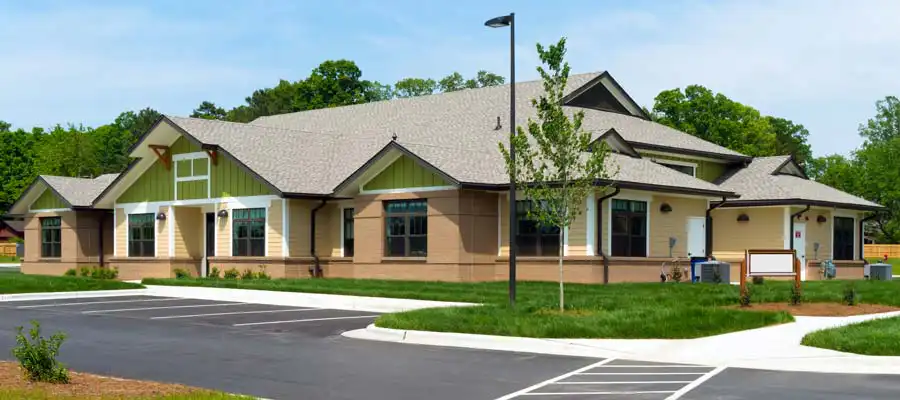Effective lead generation is a common challenge for senior living organizations and more than just word of mouth is needed to keep a community at full capacity. To increase census, connecting with individuals and organizations who can serve as referral sources remains one of the most cost-effective and powerful ways to secure valuable leads.
What are Referral Sources?
Referral sources are individuals or organizations who direct a prospective resident or family caregiver to your senior living community. Often, they are senior care professionals or organizations providing healthcare services. However, building a varied network can be beneficial not only for you but also for the referral sources themselves and for the seniors who discover your community through them.
Senior living is a highly competitive industry, and in most cases, referral sources are often contacted by competitors in the same market area. Building a good business relationship with referral sources takes time. As referral sources have a myriad of options, keep in mind that they wish to refer seniors or their family caregivers to providers who are like minded in providing quality care for seniors and who do so consistently with great outcomes improving a resident’s quality of life.
Great Referral Sources for Senior Living Communities
-
- Medical Professionals. Seniors are often under the care of at least one medical professional, either for general check-ups or support in managing a chronic health condition. For example, a senior may regularly see a physician at the doctor’s office or hospital or physical and occupational therapists at a rehab center or home. These professionals often have good insight into what kind of support a senior needs and are, therefore, in a great position to refer those who would benefit most from your services.

-
- Other Professionals. Physicians and healthcare specialists aren’t the only experts seniors and their families consult with when considering senior care. For example, they may also meet with an attorney specializing in elder law, a financial advisor, or an insurance expert. The opinions of these professionals are often highly valued and should be considered when considering potential referral sources.

-
- Local Organizations. Many aging adults regularly attend groups or classes in their local area. Organizations and communities that seniors in your market area often visit can make valuable referral sources. Some great places to consider are churches and other places of worship, libraries, and senior centers.

-
- Your Competitors. It may seem counter-intuitive, but your direct competitors are a great asset. Imagine a senior and their family touring another local community and finding something missing. If you have a strong relationship with the competitor and they know you can fill that need, they may recommend your community to the family. Building a network with other local providers and working together can benefit all parties, helping seniors find a community that offers the best fit.

-
- Current Residents and Family Caregivers. While professional referrals are incredibly valuable, the people who have experienced the benefits of your care first-hand ultimately know your community best. Prospective residents and family caregivers often highly value word-of-mouth recommendations and referrals from current residents and their families. After all, these are the people whose health and happiness are directly impacted by your care.

5 Steps to Help You Build a Strong Network of Quality Referral Sources
1. Analyze.
Considering how well your current referral sources work is a great place to start before seeking new connections. Collect and analyze data on how many leads are coming in from each referral partner and how many of these are being successfully converted into residents. With this information, you can make informed decisions on the type of new referral sources to consider going forward.
2. Research.
Once you have a clear picture of the best referral sources for your senior living community, start looking for potential new referral partners. The best referral sources will serve a similar demographic and may include professionals like physicians or financial advisors and community groups like places of worship or senior centers.
3. Connect.
Once you have compiled a list of potential new referral sources, it’s time to contact them. While you may be connecting with various individuals and organizations, be sure to keep communication friendly, but professional. Do your research on each possible referral source and convey how your missions align. When contacting professionals, explain how your services are trusted to support their patients, members, or clients specifically.
4. Nurture.
When you have successfully connected with a new referral source, it’s important to continue nurturing the relationship so they feel valued. Ensure the referral process and your communication pathways are quick, easy, and streamlined, benefiting your referral partners. For example, your referral source may value utilizing their lead response system and appreciate an immediate response as well as follow up.
5. Build.
To support the continued growth of your referral program, advertise it using traditional and digital marketing methods, including social media, an email newsletter, or your website. If you have a referral program for busy family caregivers and current residents, make referring a friend as quick and easy as possible. To gain more referrals from current residents and their family caregivers, you may also offer an incentive like credit against community fees for referrals successfully converted into residents.
How can SMCG® Help?
If you need further support in expanding your list of referral sources for your senior living or healthcare organization, Scott Marketing and Consulting Group® can offer the expert support you need. We’ve already assisted dozens of clients in discovering valuable new referral sources that help keep their community (and waiting list) at maximum occupancy.
Our team of web design, healthcare, copywriting, marketing, and sales experts help senior living organizations plan and implement strategies that work. With no cookie-cutter approaches in sight, our sales and marketing solutions are based on real data and each organization’s unique goals. Arrange a no-obligation consultation today to find out how we can support you.

